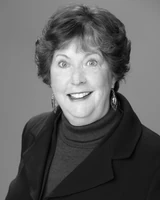This text-based course is a written transcript of the course, "Childhood Apraxia of Speech: An Overview and Assessment Considerations" presented by Rebecca McCauley, Ph.D., CCC-SLP on October 11, 2011.
Click Here to View Supplemental Handouts
Click Here to View Reference List
>> Amy: Good afternoon, everyone. Today's expert seminar, "Childhood Apraxia of Speech: An Overview and Assessment Considerations", is presented by the highly accomplished Dr. Rebecca McCauley. This seminar is a part of our week-long series of seminars on childhood apraxia of speech and we're pleased that you could join us today.
At this time I would like to introduce Dr. Rebecca McCauley. Rebecca McCauley is a Professor and Chair of Graduate Studies in the Department of Speech and Hearing Science at the Ohio State University, and an ASHA fellow and past associate editor of AJSLP. She has authored and co-edited five books dealing with children's communication disorders. Her latest book on interventions for speech sound disorders in children was co-edited with Lynn Williams and Sharynne McLeod. She speaks and writes frequently about CAS and is coauthoring a test of children's motor speech skills.
>> Dr. McCauley: The content of this presentation will be a brief discussion of the nature of childhood apraxia of speech, how we can think about distinguishing childhood apraxia of speech from other pediatric speech sound disorders, and how to construct protocols that are sensitive and specific for this diagnosis.
Emerging View Regarding CAS
This presentation is not going to involve the use of specific standardized tests but rather some informal assessments. Childhood apraxia of speech has been pretty controversial over the years, and it has been referred to as 'Developmental Dyspraxia' and 'Apraxia of Speech in Children'. However, it was not just the term that gained controversy. There was a strong sense among many clinicians that these children represented the severe end of the continuum of all children with speech disorders.
However, the work that has been done by researchers and clinicians suggesting that these children were different has led to increasing levels of investigation. We are now beginning to have a better picture of who these children are and that a diagnosis of childhood apraxia of speech is a legitimate diagnosis.
Currently, we do not know the prevalence of CAS. The prevalence figures that are discussed are between 0.1 percent (a 10th of a percent) to 3-4 percent of children referred for speech sound disorders. Prevalence is always difficult to determine and there has been some thought that CAS has become a bit of a 'fad' diagnosis. It is important to be aware of this as a possibility, as it can help us when thinking about intervention. An over-diagnosis of CAS probably will not have long-term challenges associated with it.
Childhood apraxia of speech is an increasingly important topic because there seem to be long standing oral and written language problems that appear to be more important aspects of the communication disorder as a whole as time goes on.
Given that many of you are probably working in school settings, you understand that those kinds of implications for oral and written language are significant for school age children and therefore important for speech-language pathologists to address.
ASHA 2007 Position Statement and Technical Report
I was a member of an ad hoc committee that prepared a position statement and technical report for the American Speech-Language-Hearing Association in 2007. The committee was charged with addressing a number of issues that were of interest to clinicians and the public who turn to ASHA for ideas about controversial interventions, controversial diagnosis, etc. The leader of our group was Larry Shriberg, one of the most productive researchers in speech and language disorders.
The other members of the committee included Christina Neumann Guildersleeve, an Assistant Professor at Portland State University at that time, who represented the knowledge base of younger faculty; David Hammer, a master's level trained clinician at Children's Hospital in Pittsburgh, who has worked with many children diagnosed with childhood apraxia of speech; and Shelley Velleman, an Associate Professor at the University of Massachusetts - Amherst, who has a long history of working with children with CAS as well.
Childhood Apraxia of Speech: An Overview and Assessment Considerations
March 14, 2011
